detail profile raimu
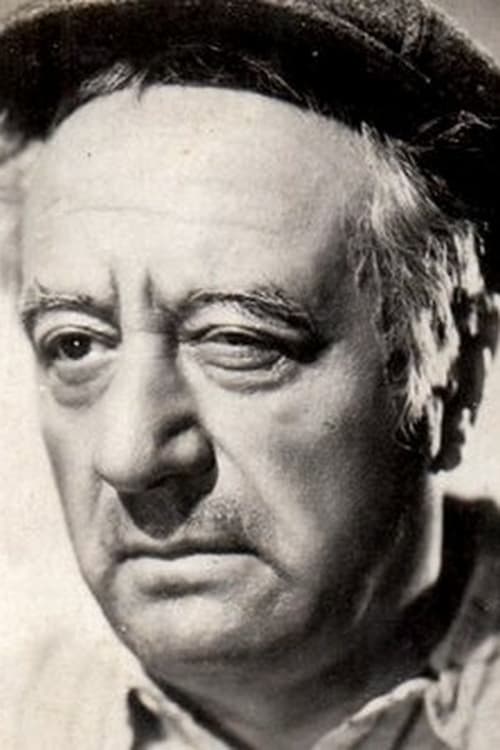
Raimu
Jules Auguste Muraire
atau dikenal sebagai
Riwayat Hidup
Raimu was the stage name for the French actor Jules Auguste Muraire (18 December 1883 – 20 September 1946).
He is most famous for playing César in the Marseilles trilogy (Marius, Fanny and César).
Info Pribadi
Peran Yang Di Mainkan Raimu
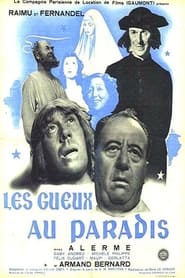 In a Provenal village two jolly...
In a Provenal village two jolly...Hoboes in Paradise 1945
In a Provençal village, two jolly good fellows, Boule and Pons, decide to dress as Saint Anthony and Saint Nicholas for the distribution of presents to the children on the feast of Saint Nicholas. They unfortunately get killed by a cart and find themselves in Hell where Lucifer and his demons duly torment them. They are saved by a prayer which helps them to climb the stairway to Paradise. Saint Peter, taken in by the applicants' disguise, lets them in. When the two true Saints show up, trouble follows. Luckily, thanks to the intervention of the Virgin Mary, the two friends are acquitted at their celestial trial and allowed to return to Earth.
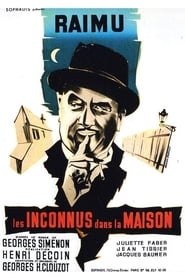 Loursat a lawyer lives with his...
Loursat a lawyer lives with his...Strangers in the House 1942
Loursat, a lawyer, lives with his daughter Nicole in a sinister and vast bourgeois residence. Abandoned for nearly twenty years by his wife, the brilliant lawyer has sunk into alcoholism and his relationship with his daughter is virtually non-existent. However, one day the corpse of a stranger is discovered in the residence of Loursat. Nicole, who frequents a gang of young people who escape boredom by stealing cars and other objects, is immediately suspected.
 A rural maidens two suitors go...
A rural maidens two suitors go...The Well-Digger's Daughter 1940
A rural maiden's two suitors go off to war, leaving her pregnant.
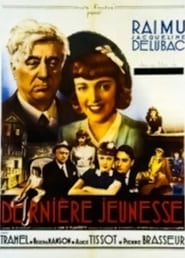 Caesar a senior French colonist returned...
Caesar a senior French colonist returned...Last Desire 1939
Caesar, a senior French colonist returned home after many years of absence, knows a girl, Marcella, who is in full depression because she was abandoned by her lover. Caesar welcomes her into his home and surrounds her with paternal attention so that he can quickly forget the past. Slowly his feeling turns into a love that Marcella seems to reciprocate. However, when Cesare realizes that the girl feels only gratitude for him and is in love with a younger man, he loses control. Blinded by jealousy, he plans to kill Marcella's lover but, in the face of the girl's vulgarity and indifference, he realizes that he has been teased and turns his anger towards her.
 In this little Provencal village a...
In this little Provencal village a...The Baker's Wife 1938
In this little Provencal village, a new baker, Aimable, settles down. His wife Aurelie is beautiful and much younger than he. She departs with a shepherd the night after Aimable produces his first breads. Aimable is so afflicted that he can not work anymore. Therefore, the villagers, who initially laughed at his cuckoldry, take the matter very seriously (they want the bread) and organize a plan to find Aurelie and to bring her back to the bakery.
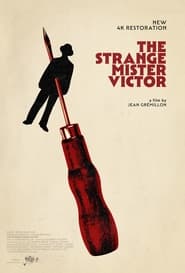 Outwardly Monsieur Victor would appear to...
Outwardly Monsieur Victor would appear to...The Strange Monsieur Victor 1938
Outwardly, Monsieur Victor would appear to be the model citizen. A respectable Toulon shopkeeper, he has a devoted wife and is courteous and considerate to all who know him. However, beneath this veneer of respectability hides a notorious receiver of stolen goods, who trades with hardened criminals. Victor manages to keep up his double life without any difficulty until the fateful day when one of his partners in crime threatens to expose him. Fearing a scandal, Victor kills the crook in a moment of panic, using a shoemaker's tool. Naturally, the murder is blamed on a local shoemaker, who is sentenced to ten years' hard labour. Seven years later, the former shoemaker reappears in Toulon, having escaped from prison. The first person to recognise him is Monsieur Victor...
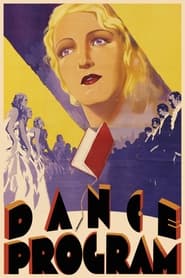 After the death of her husband...
After the death of her husband...Life Dances On 1937
After the death of her husband, Christine realizes she has possibly wasted her life by marrying him instead of the man towards whom, in her youth, she had a stronger inclination. To overcome these dreary thoughts, she decides to find out about him and the other men who danced with her during a ball that was a turning point in her life, many years ago. She pays a visit to those forgotten acquaintances one after the other; Christine is not only surprised to see how they have fared, but also discovers the impact she had, unknowingly, on the feelings and the destiny of these persons.
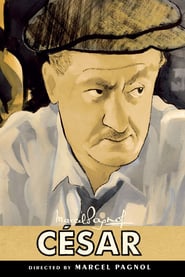 Honor Panisse is dying cheerfully with...
Honor Panisse is dying cheerfully with...César 1936
Honoré Panisse is dying, cheerfully, with friends, wife, and son at his side. He confesses to the priest in front of his friends; he insists that the doctor be truthful. But, he cannot bring himself to tell his son Césariot that his real father is Marius, the absent son of César, Césariot's godfather. Panisse leaves that to Fanny, the lad's mother. Dissembling that he's off to see a friend, Césariot then seeks Marius, now a mechanic in Toulon. Posing as a journalist, Césariot spends time with Marius and leaves believing tales he is a petty thief. Only after the truth comes out can Marius, Fanny, César, and Césariot step beyond the falsehoods, benign though they may be.
 Banker Jules Taffard a true financier...
Banker Jules Taffard a true financier...Ces messieurs de la Santé 1934
Banker Jules Taffard, a true financier, is a shrewd money-handler. Imprisoned for an alleged swindle, his trial seems to be upsetting those in the government, who may not be so far removed from Taffard's affairs (Affaire Alexandre Stavisky). He escapes from La Santé prison without any difficulty, and the authorities don't seem to be doing anything to find him... Under the false name of Gédéon, he becomes a modest handyman in a corset shop run by Madame Génissier, whose morality is as pious as it is legendary. Her son, Hector Génissier, is a foolish young man with no ambition, much to the regret of his young wife, Fernande Génissier. But it won't be long before Gédéon shows his skills in expanding the modest family business. How far can Gédéon's ascent go before Taffard's voice resounds through Gédon?
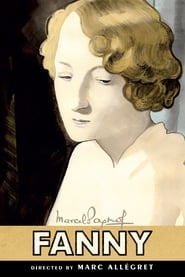 Picking up moments after the end...
Picking up moments after the end...Fanny 1932
Picking up moments after the end of Marius, this film follows Fanny’s grief after Marius’s departure—and her realization that she’s pregnant. Panisse continues courting her and embraces the baby’s impending arrival as a gift, so long as its paternity remains a secret. Fanny and Panisse wed, but after her baby’s birth, Marius returns unexpectedly and demands what he believes is still his.
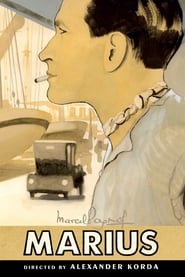 Csar runs a bar along Marseilles...
Csar runs a bar along Marseilles...Marius 1931
César runs a bar along Marseilles' port, assisted by his 23 year old son, Marius. Colorful characters abound: M. Panisse, an aging widower and prosperous sail maker; Honorine, a fishmonger with a sidewalk stall near the bar; her daughter, Fanny, who helps her sell cockles just outside the bar; and various old salts. Friends since childhood, Fanny and Marius love each other, but Marius has a secret wanderlust: every ship's whistle stirs a longing for foreign lands. When M. Panisse seeks Fanny's hand in marriage and when a departing clipper needs a deckhand, Marius and Fanny must decide who and what they love most. César, with his generous, wise spirit, tries to guide his son.
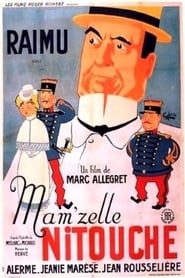 Clestin the organist of a convent...
Clestin the organist of a convent...Mam'zelle Nitouche 1931
Célestin, the organist of a convent, has written and composed a light operetta under the name of Floridor. One day, the Mother Superior asks him to chaperone one of the boarders, Denise de Flavigny, who is returning home to get married. Now, Denise, for all her goody goody looks, soon proves as saucy as can be. Things get even more complicated when Célestin starts courting Corinne, the star of his operetta, to the great displeasure of a commander of dragons, the young woman's lover. Worse, the latter is none other than the Mother Superior's brother... To say nothing of Lieutenant Fernand de Champlatreux, who happens to fall in love with Denise, his fiancée that he has never seen before...!
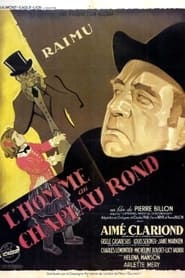 An adaptation of Fyodor Dostoyevskys Le...
An adaptation of Fyodor Dostoyevskys Le... The story of how the people...
The story of how the people...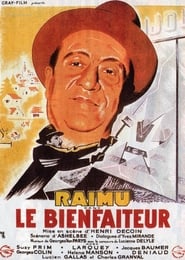 A kind and generous village noble...
A kind and generous village noble...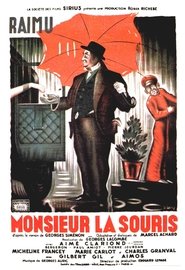 On a rainy night eccentric tramp...
On a rainy night eccentric tramp...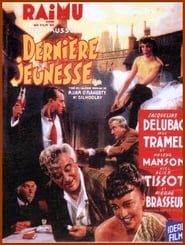 Middleaged Georges of the old school...
Middleaged Georges of the old school...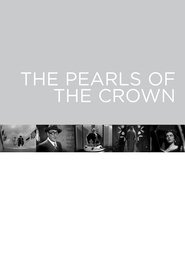 The story of the seven pearls...
The story of the seven pearls...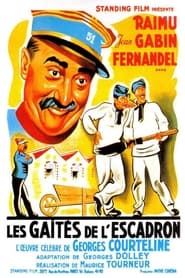 The life of disorderly soldiers in...
The life of disorderly soldiers in...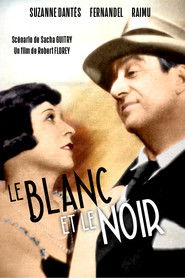 A onenight stand with an entertainer...
A onenight stand with an entertainer...